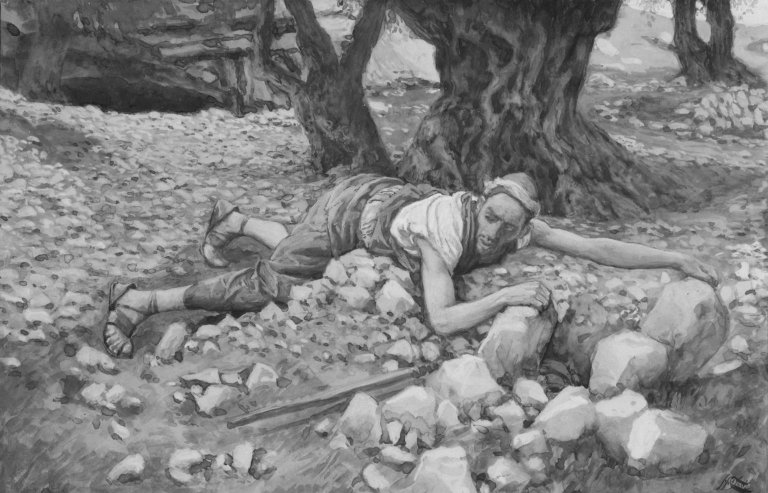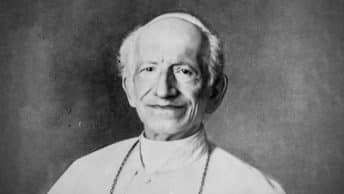The great 19th century medical missionary Dr. David Livingstone spent much of his life ministering in the heart of Africa. It was to him that a British journalist named Stanley, after a long search for him in the African jungle, addressed the famous words, “Dr. Livingstone, I presume?” When Livingstone died in 1873, his body was brought back to England to be buried in Westminster Abbey in London. Crowds lined the street for the funeral procession. One man was obviously terribly distressed, so someone asked, “You knew him well?” “Yes,” the man replied. “David and I were boyhood friends, and we went to Africa together. David went for Africa’s souls, and I went for Africa’s gold. And today I realize I concentrated on the wrong world!” That has to be just about the worst feeling any of us could ever experience: discovering, late in life, that we had spent our lives on the wrong thing, that the legacy we had wanted to leave behind had crumbled into ashes, and that we were disastrously unprepared for God’s judgment. Jesus doesn’t want anyone to undergo such a tragic experience, but the world, the flesh, and the devil are constantly trying to entice us, deceive us, and pull us in the wrong direction. It’s up to us to use God’s grace to avoid wasting our lives, and Jesus tells us quite clearly how to do this. We must set our hearts on the one thing that truly matters—and if we remain true to this choice, our life will have achieved its purpose.
Ancient societies didn’t have banks, safe deposit boxes, or other convenient places to store money. If someone accumulated a certain amount of wealth, he had to hide it in order for it to remain reasonably secure; burying it in the ground in a secret location was often the only realistic choice—though if the owner died suddenly without telling his family about the money, it would remain lost or unknown, unless someone happened to dig it up by accident. Thus, Our Lord’s parable about buried treasure was a very realistic example, and anyone who uncovered it would indeed buy the field, regardless of cost, in order to obtain legal ownership. The buried treasure Jesus is referring to, of course, is membership in the Kingdom of God, something infinitely more important than anything this world has to offer. Solomon valued wisdom more than earthly wealth or power, and God validated his choice by blessing him in many other ways. The height of wisdom is to cooperate as fully as we can with God’s plan for our lives, for as St. Paul tells us, “All things work for the good of those who love God, who are called according to His purpose.” An obedient and loving relationship with our Heavenly Father is the pearl of great price, worth whatever it takes to acquire. Seeking to do God’s will not only allows Him to bless us during our lives on earth; more importantly, it prepares us for final judgment. As Jesus says, just as fishermen sort out everything hauled in by their nets, so at the end of time the just will be separated from the wicked. Those who had lived only for themselves will discover to their horror that they had made the wrong choice, while those who lived as true children of God will be welcomed into their Father’s Kingdom.
Once upon a time a beautiful young woman noticed that a young man was following her, so she stopped to ask him why. “Because I have fallen in love with you!” he exclaimed. She told him, “My sister, who is coming after me, is much prettier than I. Go back and introduce yourself to her.” The man eagerly retraced his steps, but it turned out the woman who followed was quite unattractive. He hurried after the beautiful young woman, and demanded of her, “Why did you tell me a lie?” She declared, “You didn’t tell me the truth either, for if you were in love with me, why did you go back looking for another woman?” (Tonne, Stories for Sermons, Vol. 6, #96). This oriental fable speaks to our need to be wholehearted in our commitments. Specifically, are we truly in love with Jesus, and if we claim we are, do we let anything interfere in that relationship?
We know how easy it is to give lip service to our faith. After all, there are many registered parishioners who in some way want to be associated with Jesus Christ and His Church—but if they really meant what they say, all weekend Masses would be standing-room only, and there would be huge traffic jams out in the parking lot. We’re here each weekend, so we’re not guilty of that type of sin or hypocrisy—but there may be other ways in which we fall short. Do we go along with society’s values, instead of the teachings of the Church—whether in our relationships, sexual morality, stewardship and the use of money, and other areas of daily life? Do we spend more time and effort taking care of our bodies than our souls? Do we pray only when we need something, or is prayer a regular part of our lives, and also an expression of our gratitude and our adoration of God? When the Lord calls us, instead of saying “Yes,” do we say “Yes, but” or “Well, maybe later”? Do we try to serve two masters, or practice our religion only as long as it doesn’t become too challenging or inconvenient? Are we more concerned with remaining popular than faithful? Is Jesus just a nice guy we claim to know and admire, or is He truly the Lord of our lives?
Even if we live to a very old age, our lives on earth are still relatively short—and we don’t want to waste them, nor do we want to look back on them with regret, wishing we had followed a different path and chosen different priorities. We may not be able to live each day as if it were our last on earth, but we should live each day in preparation for the day on which we die—and this can only be done by putting Jesus first. He will never betray or disappoint or forget those who trust in Him, and if we put our lives into His hands, He’ll one day take us by the hand and lead us into our true home.







